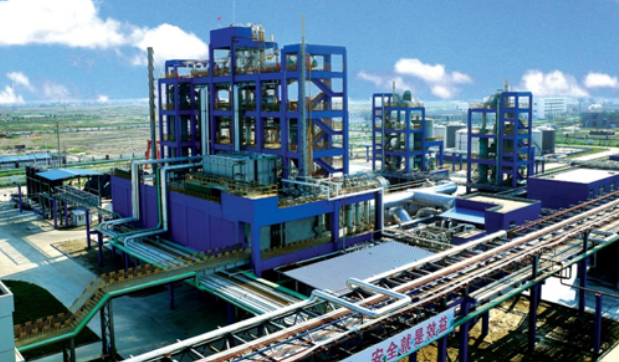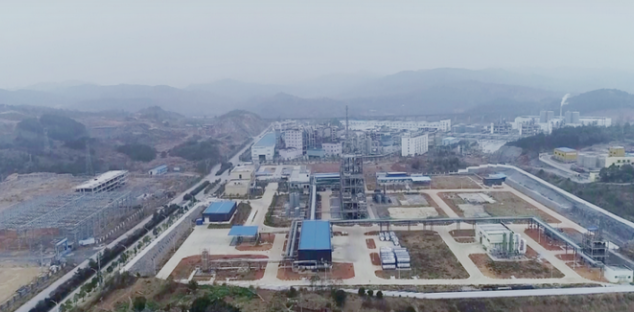The direction of chemical intelligent manufacturing | artificial intelligence is not reliable
3. Chemical devices do not accept the black box knowledge generated by artificial intelligence systems for the reliability and safety requirements of the system. Chemical production on the safety and reliability of the requirements are extremely strict, in case of accidents are catastrophic, the loss of the environment and staff life is irreversible. Artificial intelligence relies entirely on the input and output data of the system to produce a black box model. When this black box model is applied, it is not possible to find the cause of the fault or problem according to the model, and it is difficult to evaluate the reliability of the model.
Traditional artificial intelligence is more suitable for the system is extremely complex (so difficult to study the mechanism), the system causality and reliability of the human intellectual activities, such as finance, business, medicine, artificial intelligence will have a revolutionary change in these fields, these changes are really happening around us. While the field of science and technology is essentially the pursuit of causality and reliability, scientists and engineers have long attached importance to and applied data, and the degree of change of artificial intelligence to science and technology will be limited from the perspective of knowledge discovery and extraction.

Knowledge automation is the main direction
Chemical engineering, as a typical engineering discipline, is characterized by half theory and half experiment. Because some phenomena are too complex, involving machinery, materials, physics, chemistry, thermodynamics, kinetics and transmission, and a variety of factors are linked together, the cause or conclusion of some phenomena cannot be derived through pure theoretical logic, and various factors need to be separated and studied independently in the laboratory environment (thorough research method). Or take it all together and just look at the main factors that affect the results. In other words, most of the theoretical knowledge of chemical engineering comes from laboratory research.
To take a simple example, for example, for a new set of binary systems, without vapor-liquid equilibrium experimental data, what model dares to say that its prediction accuracy is within 5%? Although there are already millions of experimental data sets of binary vapor-liquid equilibrium in chemical literature and databases, chemical thermodynamicists have studied vapor-liquid equilibrium prediction models for nearly 50 years, but once they encounter critical applications, they still have to go to the laboratory to do experiments to obtain experimental data.
Due to the complexity of chemical phenomena, some phenomena show different characteristics on industrial devices and laboratory experimental devices, and even the phenomenon that cannot be observed in the laboratory, that is, the so-called "amplification effect", the essence of which is not clear about some factors leading to no correct prediction. At this point, we can get feedback from industrial plants to expand our knowledge of chemical engineering. In addition, from the operation of industrial plants, you can also get a lot of empirical knowledge about operation, maintenance, safety, beyond the scope of laboratory research.
Although the chemical industry is not a good image in China, nor is it a good major in universities, its discipline knowledge structure and research methods are more complex, and chemical engineering is a top-earning major in engineering disciplines in Europe and the United States.
Turning experience into data, turning data into knowledge, and integrating knowledge into automated systems is knowledge automation, which is the core of intelligent manufacturing.
It can be seen that the process mechanism knowledge of a chemical plant has been basically integrated into the initial design and automatic control of operation, and more than 80% of the knowledge has been automated; Plant operation knowledge, which mainly involves personnel management, asset and equipment management, operation, maintenance, and supply chain knowledge, still exists in various Sops and exists in the human brain as experience, which is still far from knowledge automation.
Knowledge automation is the key direction of informatization and intelligence in the chemical industry in the future.

What can be done
So what can knowledge automation and smart manufacturing in the chemical industry really do?
The production process is the core of a chemical enterprise, the digital, automation and intelligence of the production process of the chemical industry is at the forefront of the entire industrial system, and basically has realized the unmanned production of the workshop, but the central control room is still sitting people, observing and monitoring the production process through the computer screen, ready to manual remote intervention or even on-site intervention. In fact, the quality of our final products is not static and very stable, and the utilization rate of raw materials and energy utilization in the production process is not the best. A chemical device is not automated, unmanned even if the goal of intelligent manufacturing is achieved, the new goal is not to meet the stability of the system in a state, but to make the device system automatically run under the safety of the device, product quality constraints, raw materials, energy, asset utilization of the optimal state. Multi-product fine chemical plants also need to be agile and flexible to quickly respond to market changes and order requirements.
- ABB
- General Electric
- EMERSON
- Honeywell
- HIMA
- ALSTOM
- Rolls-Royce
- MOTOROLA
- Rockwell
- Siemens
- Woodward
- YOKOGAWA
- FOXBORO
- KOLLMORGEN
- MOOG
- KB
- YAMAHA
- BENDER
- TEKTRONIX
- Westinghouse
- AMAT
- AB
- XYCOM
- Yaskawa
- B&R
- Schneider
- Kongsberg
- NI
- WATLOW
- ProSoft
- SEW
- ADVANCED
- Reliance
- TRICONEX
- METSO
- MAN
- Advantest
- STUDER
- KONGSBERG
- DANAHER MOTION
- Bently
- Galil
- EATON
- MOLEX
- DEIF
- B&W
- ZYGO
- Aerotech
- DANFOSS
- Beijer
- Moxa
- Rexroth
- Johnson
- WAGO
- TOSHIBA
- BMCM
- SMC
- HITACHI
- HIRSCHMANN
- Application field
- XP POWER
- CTI
- TRICON
- STOBER
- Thinklogical
- Horner Automation
- Meggitt
- Fanuc
- Baldor
- SHINKAWA
- Other Brands




































































































































